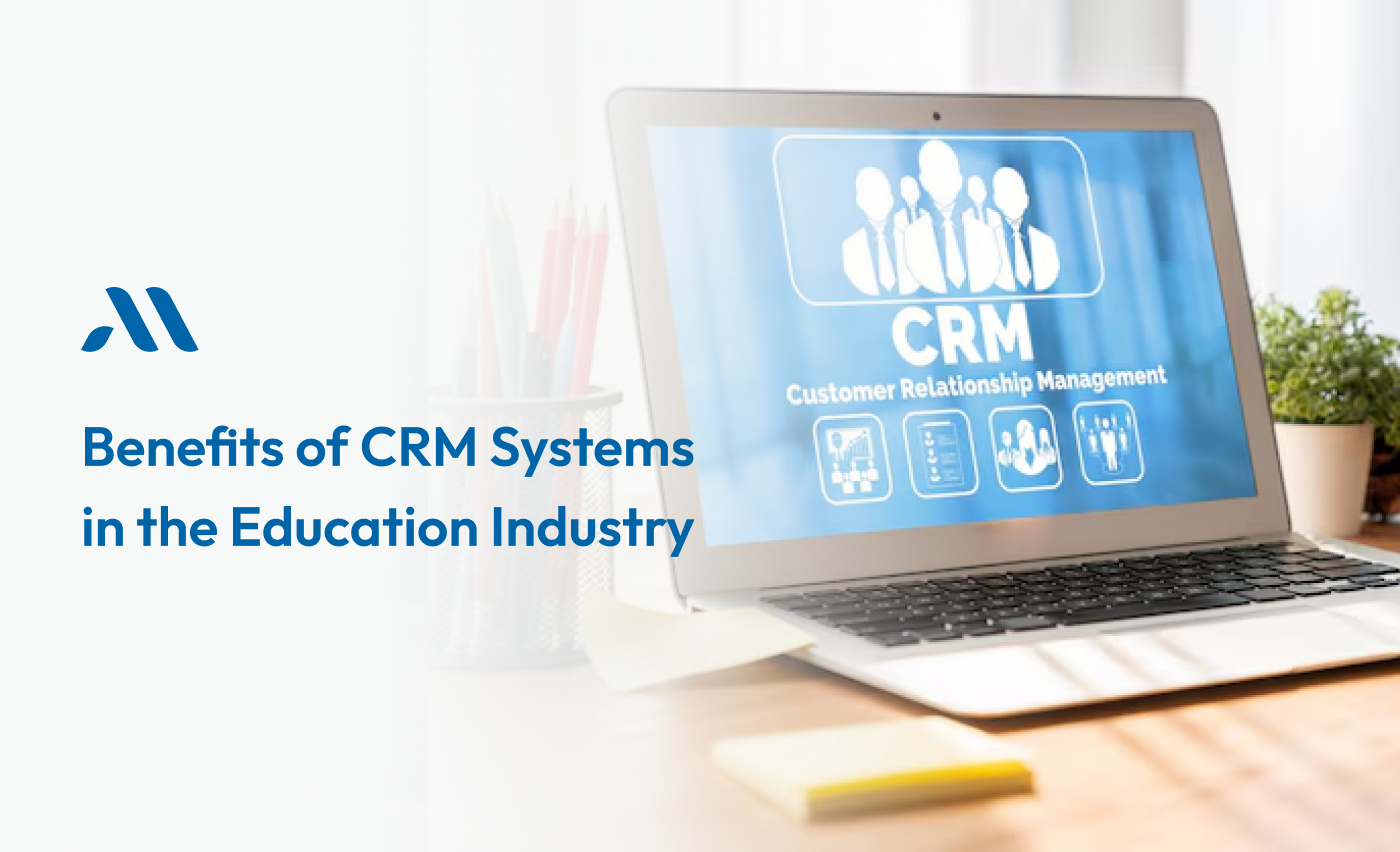Introduction
Welcome to our article about the benefits of CRM systems in the education industry. If you are looking to build a CRM for education, you are in the right place! In this article, we will explain what CRM systems are, why they are important, and how they can help schools, colleges, and universities.
What are CRM Systems?
CRM stands for Customer Relationship Management. A CRM system is a tool that helps organizations manage their relationships with customers. In the education industry, CRM systems help schools and universities manage their relationships with students, parents, and alumni. CRM systems keep all the important information in one place, making it easier to track and communicate with everyone.
Benefits of CRM Systems in Education
CRM systems provide many benefits to the education industry. Here are some of the most important ones:
Better Communication: CRM systems help schools and universities communicate better with students, parents, and alumni. They can send important updates, reminders, and announcements quickly and easily. This makes sure everyone stays informed and connected.
Improved Student Engagement: CRM systems help schools engage with students in a more personalized way. They can track students' progress, interests, and activities. This helps teachers and staff provide better support and guidance to each student.
Efficient Admissions Process: CRM systems make the admissions process more efficient. They can manage applications, track inquiries, and follow up with prospective students. This saves time and makes the process smoother for both the school and the students.
Enhanced Parent Involvement: CRM systems help parents stay involved in their child's education. They can receive updates on their child's progress, attendance, and upcoming events. This helps parents support their child's learning and stay informed.
Better Alumni Relations: CRM systems help schools maintain strong relationships with alumni. They can keep track of alumni contact information, send newsletters, and organize events. This helps schools build a supportive alumni network.
Data-Driven Decisions: CRM systems provide valuable data and insights. Schools can use this data to make informed decisions about student programs, marketing strategies, and resource allocation. This leads to better outcomes for students and the institution.
Increased Efficiency: CRM systems automate many tasks, saving time and reducing the workload for staff. This helps teachers and administrators to focus more on teaching and supporting students.
Personalized Marketing: CRM systems help schools create personalized marketing campaigns. They can target specific groups of students and parents with relevant information and offers. This increases the chances of attracting and retaining students.
Easy Event Management: Schools usually host events like parent-teacher meetings, sports days, and graduation ceremonies. A CRM system can help manage these events by tracking attendance, sending invitations, and keeping everyone informed about event details.
Improved Student Retention: CRM systems help schools identify students who may be struggling and need extra support. By tracking academic performance and engagement, schools can intervene early and provide the help students need to succeed, reducing dropout rates.
Better Resource Management: Schools have many resources, like classrooms, equipment, and textbooks. CRM systems help manage these resources efficiently, ensuring they are used effectively and are available when needed.
Enhanced Collaboration: CRM systems promote collaboration among teachers, staff, and administrators. They can share information, track progress, and work together to support students better. This leads to a more cohesive and effective educational environment.
Simplified Fee Management: Managing school fees and payments can be complex. CRM systems can track payments, send reminders, and generate reports. This makes fee management easier for both the school and parents.
Support for Extracurricular Activities: Extracurricular activities, like clubs and sports, are an important part of education. CRM systems help track student participation, manage schedules, and communicate with students and parents about activities and events.
Accessible Information: With a CRM system, all important information is stored in one place. This makes it easy for teachers, staff, and administrators to access the information they need, whether they are at school or working remotely.
Also Read - A Complete Guide to Develop an Educational Web App
How to Build a CRM for Education
Building a CRM for education involves many steps. Here is a simple guide to help you get started:
Identify Your Needs: Before building a CRM system, it's important to identify your school's specific needs. Consider what information you need to track, what processes you want to automate, and what features you require.
Choose the Right Software: There are many CRM software options available. Choose one that fits your needs and budget. Look for software that is user-friendly and has features specifically designed for the education industry.
Customize the System: Once you have chosen the software, customize it to fit your school's needs. This may include setting up different user roles, creating custom fields, and designing workflows.
Train Your Staff: Make sure your staff is trained on how to use the CRM system. Provide training sessions and resources to help them get familiar with the system. This will ensure they can use it effectively.
Implement the System: Implement the CRM system in your school. Start by entering all the necessary data, such as student information, parent contact details, and alumni records. Make sure everything is set up correctly.
Monitor and Improve: After implementing the system, monitor its performance and gather feedback from staff. Make any necessary improvements to ensure the system is working effectively and meeting your school's needs.
Steps to Ensure Success
To make the most of a CRM system in education, follow these steps:
Set Clear Goals: Before implementing a CRM system, set clear goals for what you want to achieve. This could be improving communication, increasing student engagement, or simplifying processes.
Involve All Stakeholders: Involve teachers, staff, parents, and students in the planning and implementation process. Their input will help ensure the CRM system meets everyone's needs.
Regular Training: Provide regular training sessions for staff to keep them updated on how to use the CRM system effectively. This will help them make the most of the system's features.
Monitor and Evaluate: Continuously monitor the performance of the CRM system and gather feedback from users. Use this information to make improvements and ensure the system continues to meet your school's needs.
Stay Updated: Keep the CRM system updated with the latest features and security measures. This will ensure the system remains effective and secure.
Conclusion
In conclusion, CRM systems provide many benefits to the education industry. They improve communication, enhance student engagement, simplify the admissions process, and strengthen parent and alumni relationships. By implementing a CRM system, schools and universities can make data-driven decisions, increase efficiency, and create personalized marketing campaigns. If you are looking to build a CRM for education, follow the steps outlined in this blog to get started. With the right CRM system in place, your institution can achieve better outcomes for students, staff, and the entire school community.
Need a Custom CRM system for your school? MicraSol can help! We build custom apps to improve communication, engage students, and make your processes easier. Contact us today to get started and see the benefits of CRM systems in education. Let’s make your school better together!
FAQS
1. What is a CRM system?
A CRM system is a tool that helps schools manage relationships with students, parents, and alumni. CRM stands for Customer Relationship Management.
2. Why are CRM systems important in education?
CRM systems help schools and universities communicate better, engage students, involve parents, manage admissions, and build strong alumni networks.
3. How do CRM systems improve communication?
CRM systems send important updates, reminders, and announcements quickly and easily. This keeps everyone informed and connected.
4. How do CRM systems help with student engagement?
CRM systems track students' progress, interests, and activities. This helps teachers support and guide each student better.
How do CRM systems make the admissions process easier?
CRM systems manage applications, track inquiries, and follow up with prospective students. This saves time and makes the process smoother.








